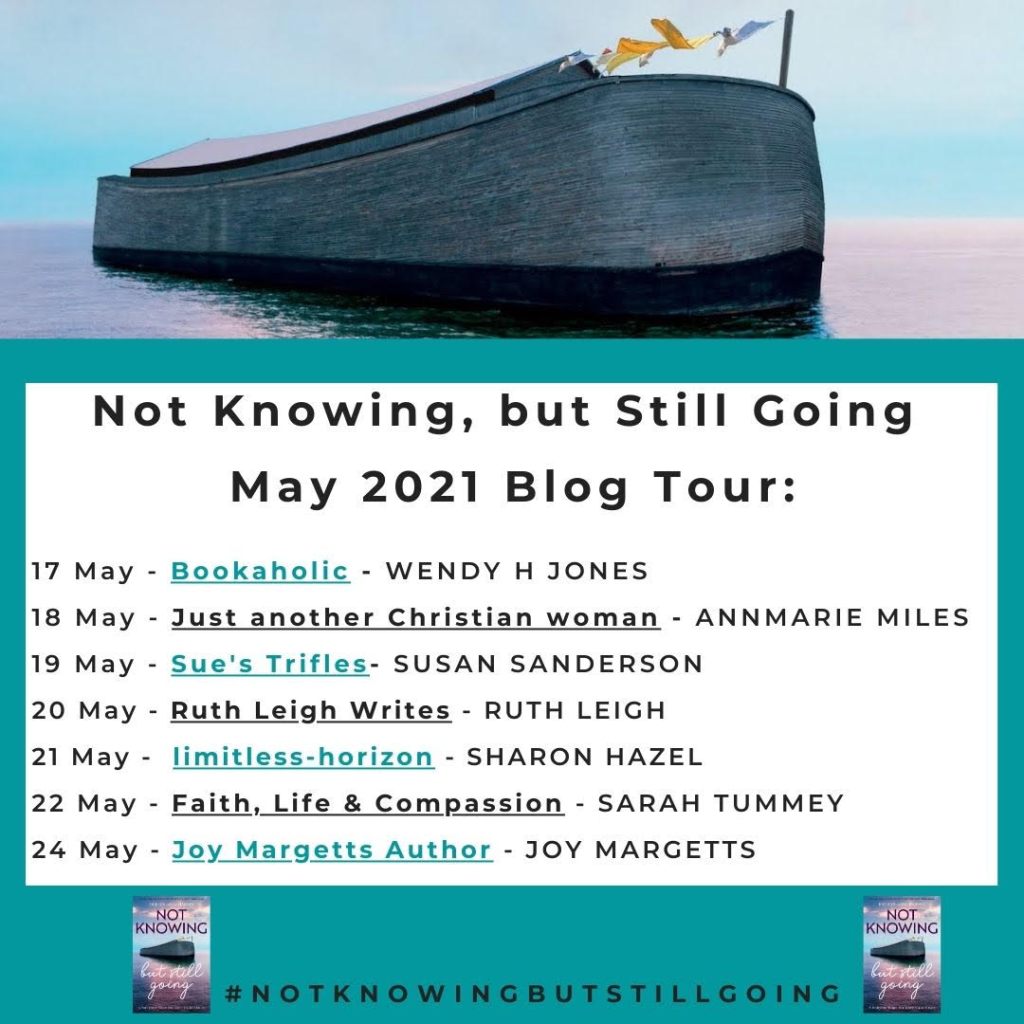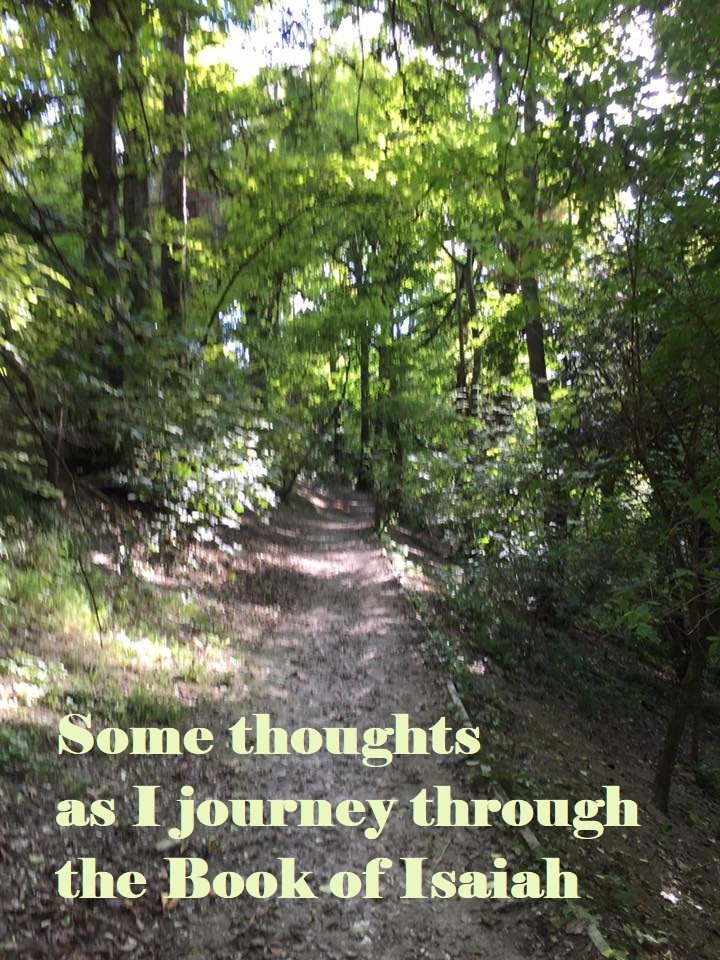
I’m delighted to have joined the blog tour for Jocelyn-Anne Harvey’s new book, Not Knowing but Still Going: A buoyant hope for uncertain times, published by Instant Apostle on 21 April 2021. Jocelyn-Anne is a fellow member of the Association of Christian Writers here in the UK.
The book focuses on the story of Noah’s Ark, but this is far from a Sunday School telling of the story. Jocelyn-Anne takes us through the chapters in Genesis. Giving names to Noah’s wife and daughters in law, she explores how these women might have reacted to what was unfolding. All the while, rooted in the biblical narrative.
In the introduction we read how the idea for this book about how a family dealt with their own lockdown and the aftermath of it, was planted in 2008. What amazing timing for the book to be published now. “The women had to go about their daily lives, while being conscious of the future change they all faced.” (Pg 28) Sound familiar?
Though it is an easy read, there is still much to stop and ponder. Each chapter helpfully ends with a prayer, a Chapter Contemplation section, and some blank journaling pages. The writer examines the human responses and practical issues that are hidden within the story. There are a number of helpful themes dealt with, such as, taking life situations a day at a time, what to do when you’re not sure what to do, having to fly in the face of popular opinion, waiting, family, human frailty and the respect we should show one another. Throughout the book, Jocelyn-Anne is honest in sharing her own struggles and mistakes, grounding her contemplations in Scripture and personal experience.
She takes us through familiar elements of the story, Noah the person, the building of the ark etc, but there were also pleasant surprises. I was reminded that they were the first to hear the sound of rain and a host of other new experiences that awaited them. There were practical implications to the changes of the landscape. There were also spiritual changes. Jocelyn-Anne reminds us, though the flood came because of sin, but, “sin hadn’t been swallowed up in the floodwaters.” (Pg. 224) Also, I had never noticed the significance that God closed the door of the Ark, but it was Noah who opened the window after the flood. In fact, the Ark Window chapter is particularly beautiful. The section about what windows can mean to us really resonated with me as we consider the lifting of lockdown restrictions.

This book would be great for a Bible study group and for personal reflection alike. It’s a book you could dip in and out of, or use for deeper study.
Follow the blog tour, if you want to read more about Not Knowing, but Still Going
You can get the book in good bookshops or a variety of online shops, including: Foyles, Waterstones, Aslan , Eden, Amazon (if you use affiliate links then also on Amazon US), and The Book Depository (this has worldwide free shipping).

Jocelyn-Anne loves the Lord, learning and literature. She has a Masters in Creative Writing from the University of Chichester, and her flash fiction has been published. Jocelyn-Anne is passionate about supporting others through theirs and helping them develop. When she’s not writing, you’ll find her in a coffee shop with friends, exploring coastal paths or trying out recipes.

 Molly is a school teacher who lives alone in the house her parents raised her. A solicitor’s letter informs her she has been anonymously bequeathed ‘Gorse Lodge’, the old Gatekeeper’s Lodge of the nearby Hepworth Estate.
Molly is a school teacher who lives alone in the house her parents raised her. A solicitor’s letter informs her she has been anonymously bequeathed ‘Gorse Lodge’, the old Gatekeeper’s Lodge of the nearby Hepworth Estate.  After 14 years of his reign, Isaiah reports the coming attack from Assyria. The King of Assyria, Sennacherib, thought that because he had been able to destroy the ‘gods’ of other nations, Judah would be no different. Hezekiah, being the faithful man that he was, prayed. See 37v14ff. His prayer does not deny the power of the enemy. His prayer is realistic — this is the situation, and on first glance, it looks bad! Unless of course, God delivers them from the hands of Sennacherib.
After 14 years of his reign, Isaiah reports the coming attack from Assyria. The King of Assyria, Sennacherib, thought that because he had been able to destroy the ‘gods’ of other nations, Judah would be no different. Hezekiah, being the faithful man that he was, prayed. See 37v14ff. His prayer does not deny the power of the enemy. His prayer is realistic — this is the situation, and on first glance, it looks bad! Unless of course, God delivers them from the hands of Sennacherib.
 We should tell people that. I bet we all know someone with tired hands and weak knees. Or maybe it’s you who needs to hear it. I know it cheers my heart every time I read it. So be encouraged, or be an encourager. No matter how dry and desolate the situation, there is promised cause for celebration.
We should tell people that. I bet we all know someone with tired hands and weak knees. Or maybe it’s you who needs to hear it. I know it cheers my heart every time I read it. So be encouraged, or be an encourager. No matter how dry and desolate the situation, there is promised cause for celebration.
 “Does a farmer always plow and never sow?
“Does a farmer always plow and never sow? 
 When meditating on those chapters, I dared to wonder if this answered the question of my altered writing voice?
When meditating on those chapters, I dared to wonder if this answered the question of my altered writing voice?